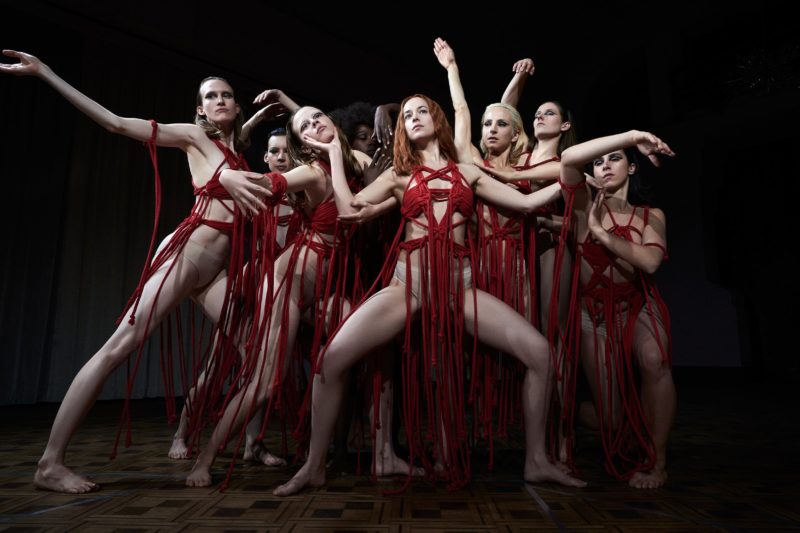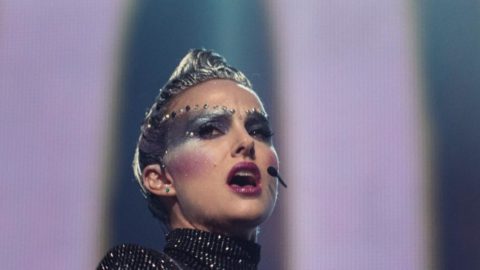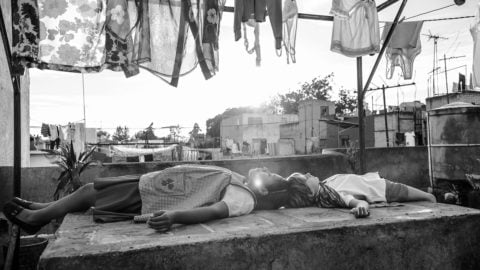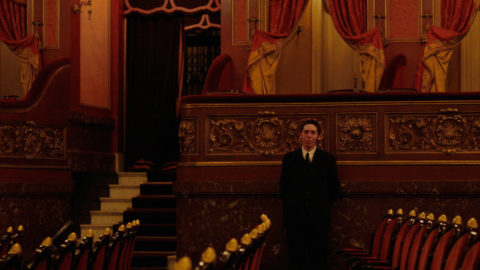Festivals: Venice

“We’re movie people,” Ethan Coen said at the Venice press conference for The Ballad of Buster Scruggs. He was explaining why it was important, to him and his brother Joel, that their Netflix-destined film also be shown on the big screen, as it will be. But I think he also meant they love film history, with a depth of feeling and knowledge beyond marketable references, existing in a different universe from plug-and-play hot takery. Composed of six stories written over a period of 25 years, The Ballad of Buster Scruggs is six different kinds of swell, and the clear standout at a festival where, as usual, many were busy anointing which movies you could stop thinking about and start placing bets on, chiefly Damien Chazelle’s First Man (aka Second Attempt) and Bradley Cooper’s A Star Is Born. “People attribute levels of irony to us that aren’t actually there,” was another thing Ethan said, and while I’m fairly certain there are at least trace amounts of irony in the Coen Brothers oeuvre, the reflex he describes could explain why The Ballad of Buster Scruggs might be taken by some as a punch-line oddity to shrug off—as opposed to an intricately detailed and exactingly realized and acted work that satisfies as both pulp storytelling and heart-of-America introspection.
I’ll leave my estimable colleague, Michael Koresky, to deliver the goods in full in our new September/October issue, but suffice to say it’s preposterous that anyone should pay more attention either to Chazelle’s calculated bid for cinematic triumph—a promisingly roughed-up exercise in withholding the glory of a glorious achievement, that’s turned tepid by its predestined sad-astronaut trajectory and Ryan Gosling’s shallow emotional lexicon—or to Cooper’s entrance into the directing business with a movie that so desperately wants us to grasp the embarrassment inflicted by a country-rock singer on his shooting-star partner that it climaxes with a scene of him pissing his pants on stage during her Grammy acceptance speech. Omg awkward!! I do enjoy Gaga’s Cher-ette directness, however, and the filmmakers botch the chance not to make the story sneakily dwell on his hangdog cycle of daddy-issue-fueled self-destruction (though its screenplay pays lavish tribute to personal-jet air travel, as every other scene begins with one or the other character suddenly popping up for a heart-to-heart).
It’s doubly strange to devote much time or energy to these two movies (which, I get it, I have just done) given the spectacular if variably distinguished films rolling into the cinemas like juggernauts on the Lido during the festival’s heady opening days. Beyond First Man, which, it must be conceded, features a rocketship, there was the concertedly impressive ROMA (self-styled in all caps just in case you somehow miss it), the massed portrait of Peterloo, the bizarre love triangle of The Favourite (featuring perhaps the most outré final shot in a studio film in quite some time), the passion of the Suspiria, and The New Film From the Guy That Brought You Citizen Kane. Rather than resembling a sloppy, towering buffet, the festival scheduling deserves a shout-out: kudos to the programmer responsible for the same-day press pairings First Man / The Mountain (scaling the heights of ’50s-to-’60s Americana), Suspiria / Charlie Says (cults and their discontents), The Sisters Brothers / La Quietud (sibling warfare), and, drawing attention to their grand-scale treatment of class, Roma / The Favourite.
We’ll have more to say in these pages about all of these films in the coming days and months. For now, I’d rather single out the fond warmth of Tsai Ming-liang’s (sometimes talking) portrait series Your Face, tracing lovely road maps of adult lives through close-ups; and the emotional immediacy and heart-stopping chiaroscuro of Roberto Minervini’s latest, What You Gonna Do When the World’s on Fire?. The latter is titled as if it was in fact a reprise of his previous, barn-buster The Other Side, while in fact hewing closer to the tones and moods of that film’s first movements, with a triptych of two young brothers, a New Black Panther squad, and a woman who owns a bar—and her experiences—with an energy and resilience that leaps off the screen. A star is born, indeed.







